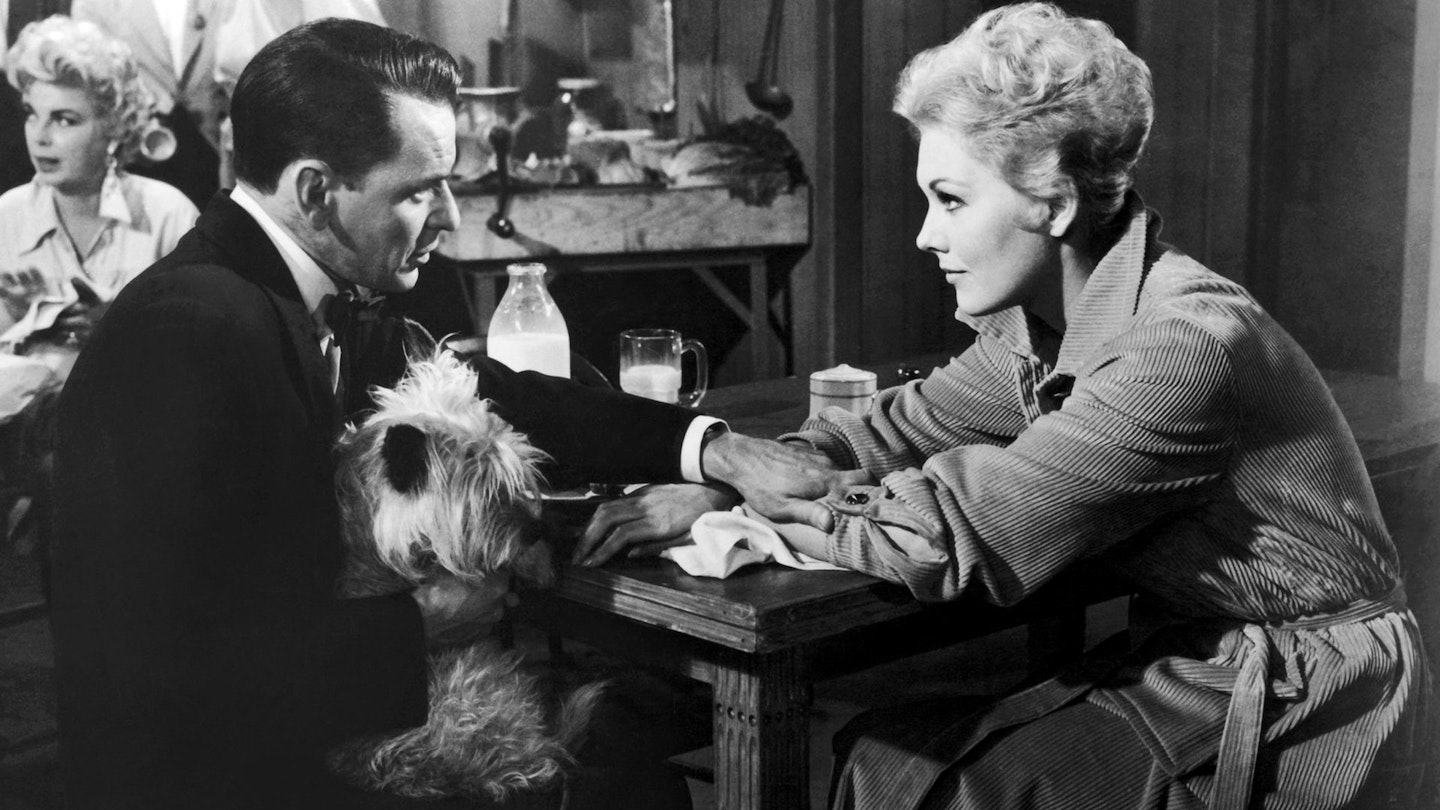Broadway had been stunned in 1940 when Richard Rodgers and Lorenz Hart opened their adaptation of John O'Hara's epistolatory *New Yorker *stories, as such sordidly ironic material had never been musicalised before. Gene Kelly had swaggered through the production with the appealing arrogance that was to characterise even his most genial screen characters. But Columbia chief Harry Cohn couldn't afford MGM's asking price and he considered starring James Cagney or Cary Grant opposite Gloria Swanson, Grace Moore, Ethel Merman and Irene Dunne, before he shelved the project on account of its unsuitability for wartime entertainment. Marlon Brando and Mae West topped Cohn's 1950s wishlist, but he settled for Frank Sinatra, whose career he had helped salvage in From Here to Eternity. However, his casting of the female leads was more in keeping with the nasty tone of the storyline, as he paired Rita Hayworth with rising star Kim Novak to payback the fading Love Goddess for walking off Joseph And His Bretheren.
Although 10 of Rodgers and Hart's original songs were retained from the original show (alongside four interpolations), the demands of the Production Code meant that screenwriter Dorothy Kingsley had to heavily sanitise the narrative, with the result that an unregenerate heel became merely a flawed hero. Moreover, Sinatra's inclusion (which Kelly never forgave) meant that the emphasis shifted away from dance to song and he not only got to croon the likes of I Could Write a Book', but also belt out The Lady Is a Tramp' in the inimitable style he had recently developed with Capitol Records arranger, Nelson Riddle.
However, Novak and Hayworth were dubbed, respectively on My Funny Valentine' by Trudi Erwin and on Zip' and `Bewitched, Bothered and Bewildered' by Jo Ann Garner. Hayworth (who was younger than Sinatra and resented having to play the older woman) often looks distant, as this was her studio swansong. But Novak was hopelessly miscast and her rigidity further devalued a project that could have done with remaining mothballed for another decade, so that its coarse cynicism could have been exposed in all its tawdry glory.
